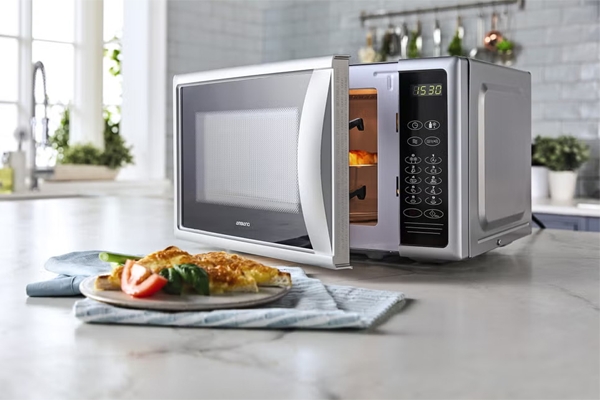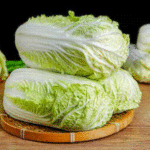Microwaves are essential appliances in many households for quickly and efficiently reheating food and drinks. However, some people have concerns about the safety of these devices.
Cleveland Clinic consulted with nutrition expert Paige Welsh to address common questions about microwave use.
Can microwaves cause cancer?
While it may sound alarming that microwaves use radiation to cook food, they actually utilize non-ionizing (low-energy) radiation to heat your meal. This is the same type of radiation found in cell phones, TVs, light bulbs, and other common household appliances.
According to the National Cancer Institute in the US, this type of radiation does not alter molecular structures, and there is no evidence of potential carcinogenic effects. The American Cancer Society reassures: “There is no evidence that this type of electromagnetic radiation can cause cancer when used according to instructions.”

Microwaves are familiar household appliances that are safe to use. Illustration: New Scientist
Three don’ts when using microwaves
1. Don’t use a damaged microwave
A damaged microwave can leak, allowing some non-ionizing radiation to escape. Although you would need to be exposed to extremely high levels of radiation to experience any negative effects, it’s essential to be cautious. High levels of radiation can cause burns and eye damage.
Therefore, avoid using a microwave that is dented, cracked, peeling, or damaged by fire, and be wary if it takes longer than usual to heat your food.
Don’t use certain types of plastic containers
When choosing containers for microwave use, steer clear of certain plastics. Generally, if plastic bowls, plates, or containers are labeled as microwave-safe, they can be used. However, expert Welsh warns, “The types of plastic wrap and containers that are not safe for microwave use may melt into your food.”
Some even suggest avoiding all plastic containers in the microwave due to the potential for harmful molecules to leach into your food.
If you’re concerned about these potential risks, consider switching to containers made from microwave-safe materials like glass or ceramic.
Don’t put metal containers in the microwave
Putting metal containers in the microwave can cause sparks and potentially start a fire. Moreover, microwaves use a metal plate to prevent radiation leaks. When metal objects create sparks, they can damage this plate.
Note
Reheating food not only makes your meal taste better but also ensures that any bacteria present are eliminated. Microwaves heat food from the outside in, so it’s a good idea to cut larger pieces of leftover food into smaller portions to ensure even heating.
According to VietNamNet





































